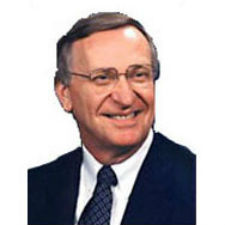
The process of redistricting becomes complicated and very political, however, as incumbent legislators attempt to draw lines around those persons most supportive of them; that process is commonly referred to as “gerrymandering.” I and others have attempted to take politics out of the process to create fairer districts through formation of a commission that would draw lines independent of any consideration of where incumbent legislators live. With a neutral party drawing lines, “voters would pick their legislator rather than legislators picking their voters,” as advocates of redistricting reform maintain. The effort toward a fairer process will continue in federal courts and in the legislature.
Persons who live in districts are referred to as constituents of the district’s legislator. On average, about half of constituents are registered to vote. Some people are too young, not yet a citizen, or have not bothered to register to vote, but they are represented in the legislature. Legislators vary in opinions and attitude as to whether they represent all the persons in their district, those who register to vote, or those who actually vote. I believe I have a responsibility to represent all the people who live in my district as best as I can.
Constituencies however can go beyond legislative boundaries. My passion for education issues, for example, results in people from throughout the Commonwealth asking me for support and assistance. Likewise, my concern for the environment results in my working with people with the same interest from around the state. Some persons call on me for help if they are represented by legislators who do not support a concern that is important to them. Even in these instances I am working to represent the shared interests and needs of those who elected me.
Recently I spent a weekend working in a health clinic in Southwest Virginia where people have limited access to medical care and often cannot afford services. I hope that my work was useful to the Wise County Health Fair. I know for certain it helped me to bring to the attention of others the need to expand Medicaid in Virginia. If that happens, there will be less need for one-day clinics to provide people with health care in the neediest region of the state, but at the same time those programs and services will be available to the constituents in my district who are fewer in number but just as needy.
History defines why Virginia is called a Commonwealth. If we use the word in its more literal sense, we are constituents of the same state government working for the common good.










